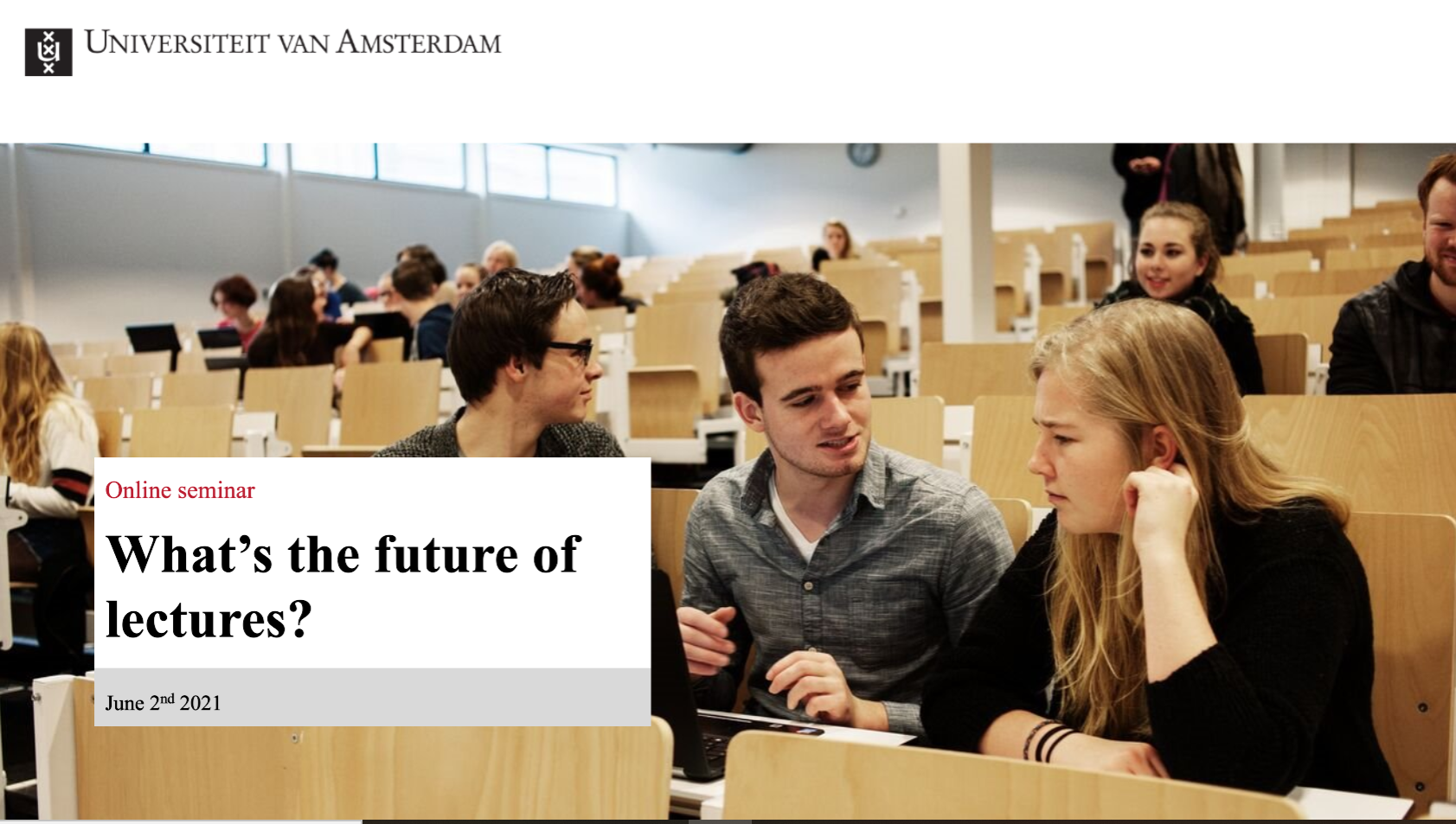
‘What’s the future of lectures?’
Recap Seminar June 2nd 2021
During the online seminar ‘What is the future of lectures?’ lecturers and students shared their experiences and knowledge about the online lectures of the past year and collaborate on how this relates to the perspective of key note speaker Dr Emily Nordmann. Nina Hol, chair of the Central Student Council and law student, shared her experience as a student. Prof dr Peter van Baalen, education director of the College of Economics and Business, argued in his contribution that the prominence of the (web) lecture requires a serious revision.
The seminar provided input for further development of teaching and the use of large scale lectures for the coming academic year.
View the short video excerpt:
Overview of the discussions
A lot of good points were brought up, so we would like to share an overview of what was discussed in the break out rooms. Several propositions were discussed:
proposition 1: The purpose of a lecture is to convey information, not to inspire.
Most participants disagreed and said that lectures are not merely for the transfer of knowledge, but also for inspiring, social interactions, and discussions.
proposition 2: The reason that lecturing has received such negative attention has more to do with teachers doing it so poorly than with its potential effectiveness as an instructional strategy.
In order to have more inspirational lectures, we should aim for more didactical training for the lecturing teachers to improve their skills. That being said, students have varying reasons for not attending lectures. Many of these reasons are not based on didactical considerations.
proposition 3: Web lectures are an educationally comparable alternative to live lectures.
Many noted that the main difference is the level of interaction. Not only is it important for students to interact with each other, but it is also important for the lecturer. With live-streaming it is harder to see whether students understand, and this aspect disappears completely with pre-recorded clips. One possible benefit of web lectures is that shyer students feel more comfortable to ask questions.
proposition 4: Web lectures or other digital forms will replace live lectures; they are the future.
Based on the arguments mentioned above, most participants did not see web lectures as a full replacement for live lectures. The contact is so much more rich and nuanced when being in the same room. Other parts in education can be enriched through digitalization (like office hours and having an international guest speaker), but it doesn’t work well for lecturing.
One disclaimer that has also been made by the participants is that the online/physical environment perception is very subjective and varies over roles, programmes and, faculties. We should therefore treat it in that way. For instance, for one student, the lectures could remain digital, as long as the smaller tutorials would go back to being live, while one of the teachers said that for her, it was exactly the other way around. In small tutorials through Zoom she could still motivate students and get a connection with them, while in the lectures the difference between getting feedback from a live audience and talking to a computer screen with black boxes with names was night and day.
Another interesting notion to point out is that lectures are just one part of the didactical pallet available. So depending on the total course design, the lecture will have more or less relevance.
More seminars?
Please feel free to email TLC with your suggestions for a future seminar or workshop.
Watch the entire online webinar here
Click on the link to review the entire lecture of What’s the future of lectures





